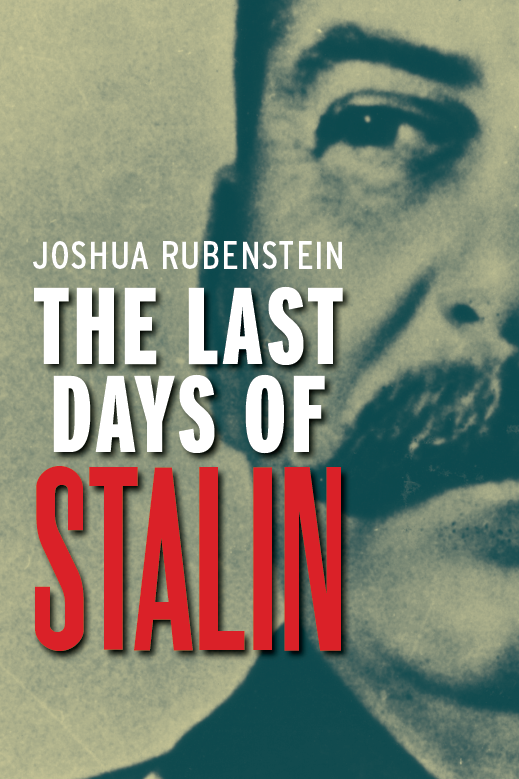
The Last Days of Stalin explores the devious plotting of Beria, Malenkov, Khrushchev, and other “comrades in arms” who well understood the significance of the dictator’s impending death; witness‑documented events of his death—as compared to official published versions; the pro-active steps taken by Soviet leaders, after Stalin’s death, to signal a more relaxed foreign policy to the U.S. in the spring of 1953; and the failure of President Dwight Eisenhower and Secretary of State John Foster Dulles to match the Kremlin’s conciliatory gestures. The Last Days of Stalin is a gripping account of the months before and after Stalin’s death and how his demise reshaped the course of twentieth‑century history.
Advance Praise:
“Stalin’s death in March 1953 cut short another spasm of blood purges he was planning, but triggered only limited Soviet reforms. Joshua Rubenstein’s lively, detailed, carefully crafted book chronicles a key twentieth‑century turning point that didn’t entirely turn, revealing what difference Stalin’s death did and didn’t make and why.” — William Taubman, author of Khrushchev: The Man and His Era
“A clear, sober and emotionally powerful narrative that brings to life the last years of Joseph Stalin’s rule, showing vividly how the death of the tyrant changed Soviet and international politics and brought relief to millions of his existing and potential victims, and first and foremost the Soviet Jews.” —Serhii Plokhy, author of The Gates of Europe: A History of Ukraine
“Based on a plethora of primary Soviet sources, Rubenstein has produced a persuasive and well‑written account of the convoluted time that followed Stalin’s death in March 1953. He discusses the complex succession politics in the Kremlin and provides much new information. Rubenstein also explores Eisenhower’s and Dulles’ disinterest in taking up Churchill’s proposals to exploit the ‘narrow window of opportunity’ to embark on constructive negotiations with Moscow once Stalin had gone. This is an enlightening and important book.” —Klaus Larres, author of Churchill’s Cold War: The Politics of Personal Diplomacy
